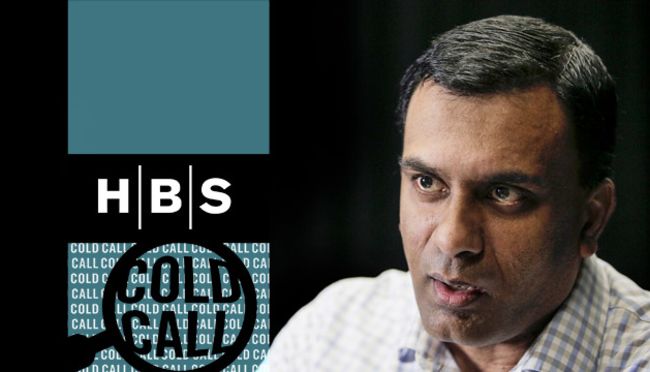National Security →
→

- 24 Feb 2020
- Research & Ideas
The Hidden Vulnerabilities of Open Source Software
The increasing use of open source software in most commercial apps has revolutionized software development—but also created hidden vulnerabilities, say Frank Nagle and Jenny Hoffman. Open for comment; 0 Comments.

- 01 Nov 2018
- Working Paper Summaries
Forecasting Airport Transfer Passenger Flow Using Real-Time Data and Machine Learning
Passengers arriving at international hubs often endure delays, especially at immigration and security. This study of London’s Heathrow Airport develops a system to provide real-time information about transfer passengers’ journeys through the airport to better serve passengers, airlines, and their employees. It shows how advanced machine learning could be accessible to managers.

- 21 Dec 2016
- Cold Call Podcast
Target's Expensive Cybersecurity Mistake
Professor Suraj Srinivasan explores one of the largest cyber breaches in history, analyzing why failures happen, who should be held accountable, and how preventing them is both a technical problem and a matter of organizational design. Open for comment; 0 Comments.
- 06 Apr 2016
- What Do You Think?
As Tim Cook, How Would You Tackle Apple's Next Challenge?
SUMMING UP With Apple's technology now apparently less secure, CEO Tim Cook suddenly has some critical decisions to make. James Heskett guides us through the options and asks for suggestions. Open for comment; 0 Comments.
- 04 Mar 2016
- Research & Ideas
Is E-commerce at Risk in Apple's Security Dispute with the FBI?
Apple invests heavily in making its products secure, but now is being commanded by the FBI to make more investments to undo that work. Sunil Gupta discusses the fallout when business and government collide. Open for comment; 0 Comments.
- 02 Mar 2016
- What Do You Think?
Is Apple’s Real Privacy Challenge Technology Innovation Itself?
SUMMING UP: Apple's battle with the FBI over the iPhone contents of one of the San Bernardino shooters raises a question for James Heskett. Given the relentless pace of technology, can any company guarantee the privacy and security of its users? What do YOU think? Closed for comment; 0 Comments.

- 19 Feb 2016
- Working Paper Summaries
‘Does 'What We Do' Make Us 'Who We Are'? Organizational Design and Identity Change at the Federal Bureau of Investigation
Both the design and identity of the FBI changed greatly in the wake of the September 11, 2001 terrorist attacks. This study tracing the co-evolution of the Bureau’s organizational design and identity before the 9/11 attacks and through three subsequent phases finds that successful changes to organizational identity are likely to be delayed after a radical external shock: Management is likely to be constrained, appropriate design is probably unclear, or both.

Why White-Collar Crime Spiked in America After 9/11
The FBI shifted agents and other budget resources toward fighting terrorism in certain parts of the country, and financial fraud and insider trading ran rampant, according to research by Trung Nguyen. Open for comment; 0 Comments.